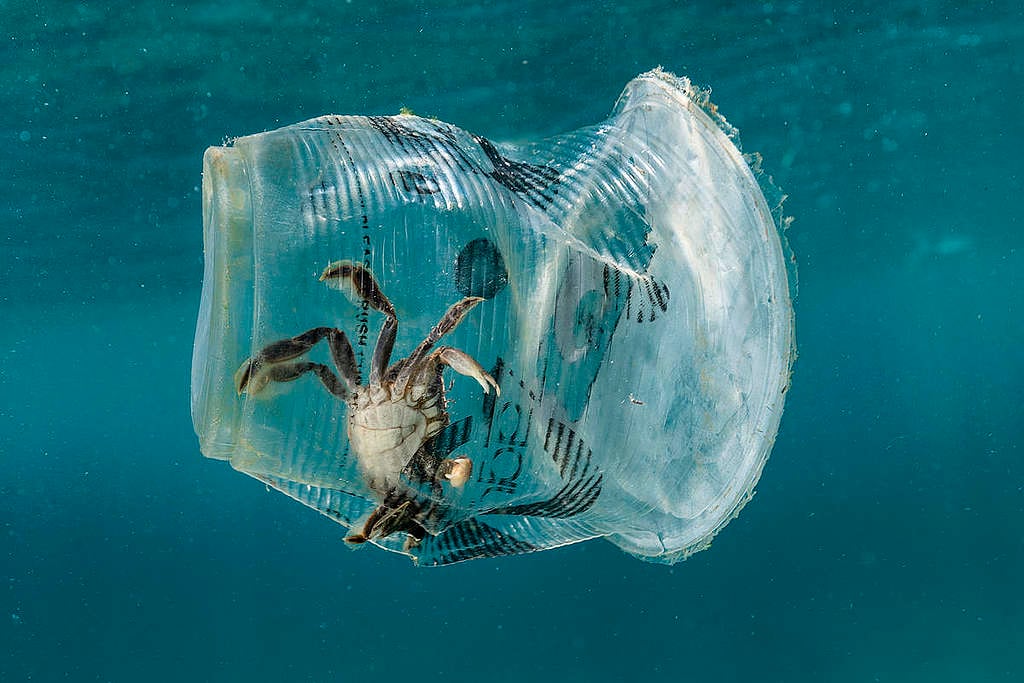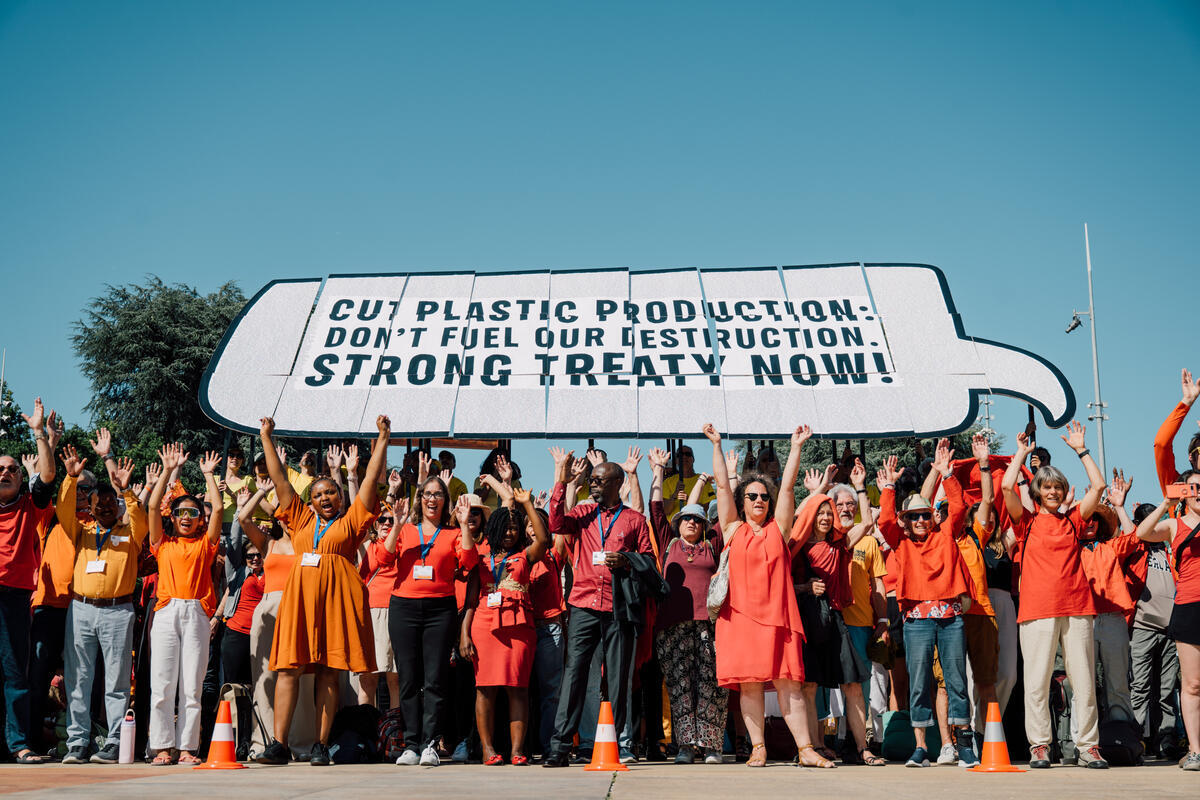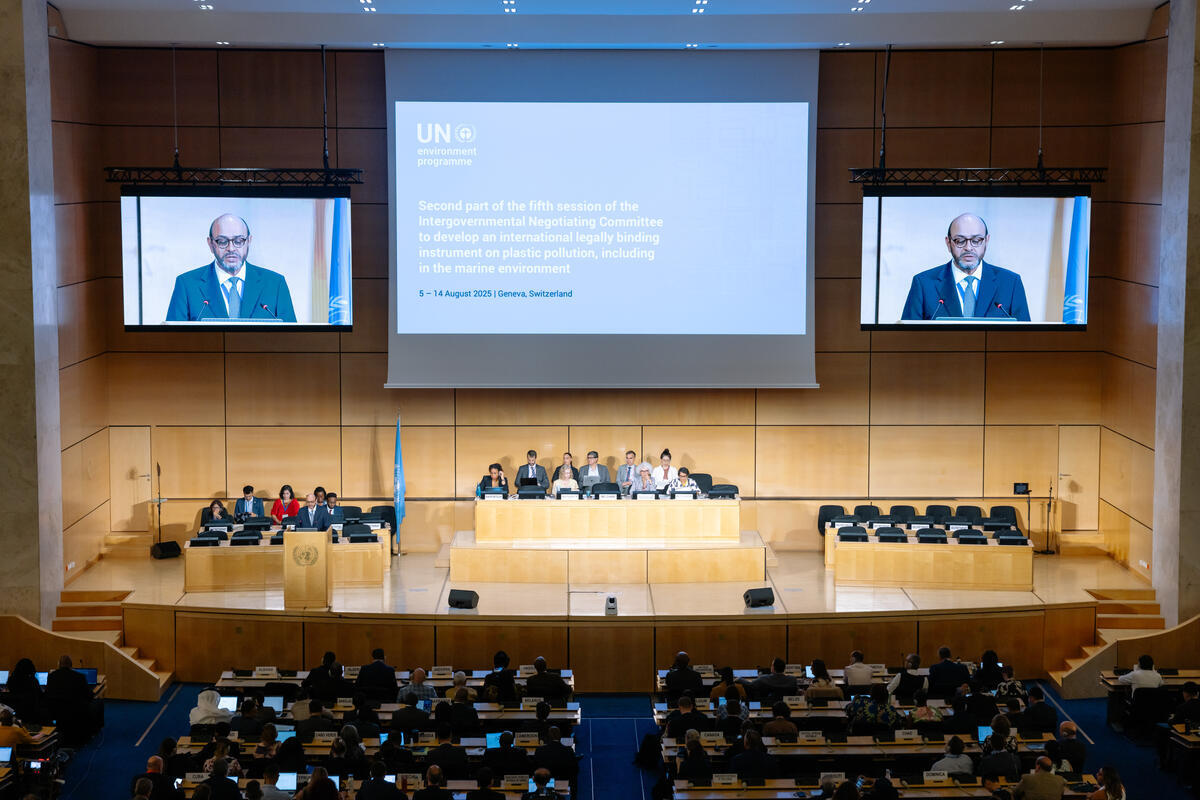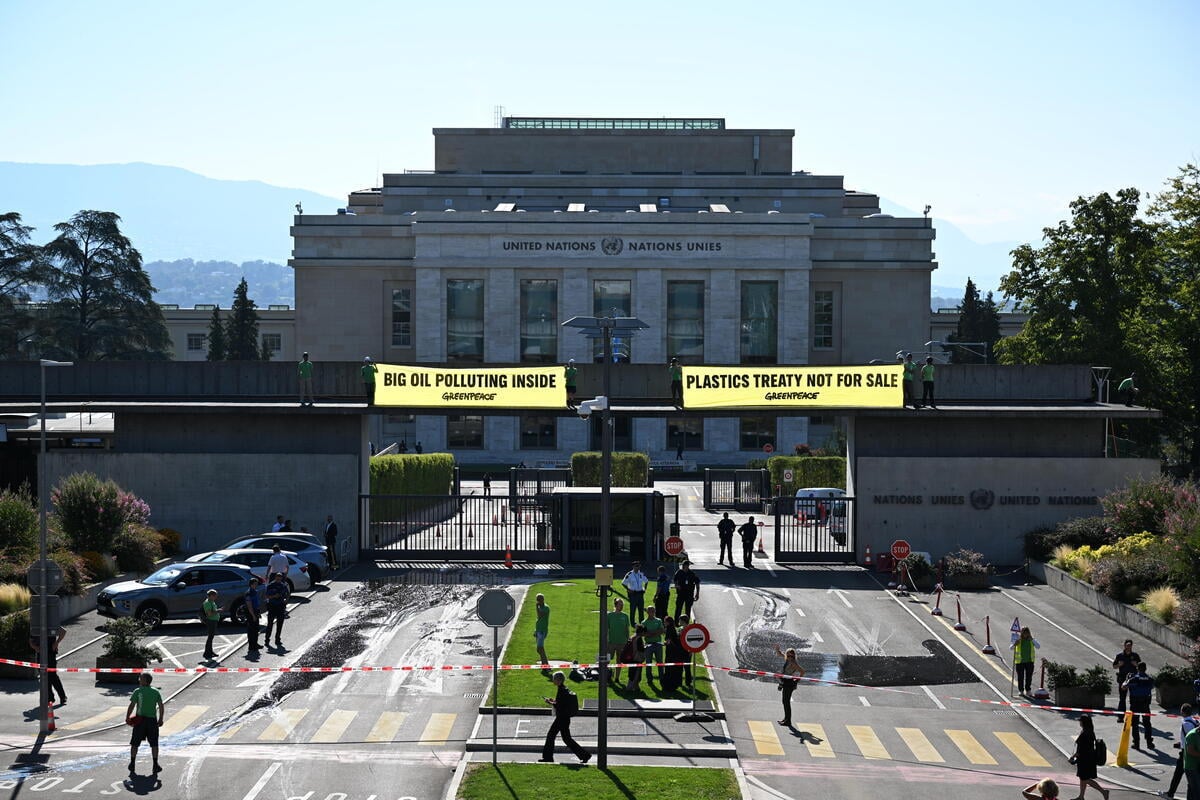05 March 2019 – Greenpeace activists today tailed a garbage disposal barge carrying tons of plastic waste through Manila Bay, to protest the broken system of plastic production and pollution. The activists unfurled and attached banners on the barge that say “STOP SINGLE-USE PLASTIC.”
“While citizens are trying to clean-up our beaches, waterways and communities of all the plastic garbage and debris, plastic production continues to rise and overwhelm us. The plastic crisis is a growing monster. Clean-up activities are not enough. We have to stop single-use plastic at source if we really want to protect our environment and ourselves,” said Abigail Aguilar, Campaigner of Greenpeace Southeast Asia – Philippines.
The action comes at the heels of the visit to Manila of Greenpeace flagship, the Rainbow Warrior, which is sailing next to Cebu in its global “Ship It Back” campaign tour. The tour calls attention to the role of fast-moving consumer goods (FMCG) corporations [1] in peddling single-use packaging over longer-lasting and more sustainable delivery systems to their markets.
Greenpeace pointed out that consumers in markets like the Philippines are being blamed for the massive plastic pollution littering the streets and waterways, but that it was the big corporations, mostly headquartered in Europe and the US, that produce the massive amounts of single-use plastic packaging, who need to give back to their consumers, especially to those with little disposable income who are not given choices and yet are at the forefront of having to deal with the mounting plastic garbage in their everyday lives.
Since 2017, Greenpeace, as part of the bigger Break Free from Plastic movement [2], named and shamed big fast-moving consumer goods corporations who are producing products wrapped in single-use, unrecyclable plastic packaging.[3] Last year, the report ‘A Crisis of Convenience’ implicated top brands [4], and said that ‘the promotion of branded products – food, drink, cosmetics and cleaners – in one-way packaging, is one of the drivers of mass production, over-consumption and is significantly contributing to the plastic pollution crisis’.
“These FMCG corporations take tons of profit from people who buy their goods in many small amounts. And they leave the tons of plastic garbage for citizens like us to dispose of ourselves. It’s a broken system: from massive plastic production, to the encouragement of throw-away habits among consumers, to failing garbage disposal. But FMCG companies have the resources and technology to invest in more sustainable delivery methods. What citizens and governments are doing right now is not enough. We should all pitch in to do more,” Aguilar added.
Notes to the editors:
[1] FMCG includes any product with a short shelf life and typically relatively low cost, such as soft drinks, food or toiletries. They are typically sold at very high volumes, with a high turnover of the product.
[2] www.breakfreefromplastic.org
[3] Nestlé, Unilever, P&G among worst offenders for plastic pollution in Philippines in beach audit.
http://www.greenpeace.org/seasia/ph/press/releases/Nestle-Unilever-PG-among-worst-offenders-for-plastic-pollution-in-Philippines-in-beach-audit/
[4] A Crisis of Convenience: The corporations behind the plastics pollution pandemic.
https://www.greenpeace.org/international/publication/19007/a-crisis-of-convenience-the-corporations-behind-the-plastics-pollution-pandemic/
Media Contact:
Abigail Aguilar, Campaigner, Greenpeace Southeast Asia – Philippines
Email: [email protected] | Mobile: +63 998 589 2551
Angelica Carballo Pago, Media Campaigner, Greenpeace Southeast Asia – Philippines
Email: [email protected] | Mobile: +63 949 889 1332

Our coastlines are among the most impacted by plastic pollution in the world. Be part of the solutions!
TAKE ACTION


